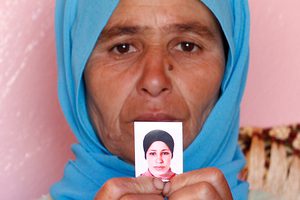
Amina Filali was just 16 years old when, in the depths of despair, she decided to take her own life.
Several months earlier the teenager from Morocco had been forced to marry a man whom she said had raped her.
In March 2012, Amina lost all hope. She swallowed rat poison in her hometown of Larache and died shortly afterwards.
Up until last week, men accused of rape in Morocco were able to escape prosecution by marrying their victim, if the girl was aged under 18.
Nearly two years after Amina’s death, this widely-criticised get-out clause in Morocco’s Penal Code has finally been abolished.
Although the decision came too late for Amina, the amendment of Article 475 is a significant step forward for women and girls in Morocco and a victory for women’s rights campaigners who lobbied heavily to amend the law following her death.
Sadly, however, for many other women and girls across the Maghreb, such laws continue to pose a major threat.
This article was originally published in the International Business Times. Click here to read it in full.

